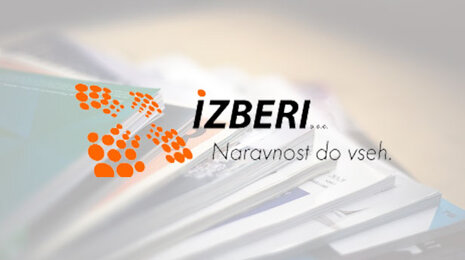Implementing EDI in the foreign trade sector unlocks a wide range of options and opportunities that can significantly benefit your business. Our team is here to support you in leveraging these additional services to maximize your success. Let us help you implement and customize solutions tailored to your needs.
foreign trade with EDI – speed, security, and reliability.
In foreign trade, where every mistake can lead to costly delays, Electronic Data Interchange (EDI) is an indispensable tool. By automating processes, reducing errors, and accelerating transactions, EDI provides companies with a competitive edge in the international market.

40 years of expertise in driving efficiency in foreign trade
With 40 years of experience, EDITEL stands as Europe’s leading provider of EDI solutions. Our deep understanding of the local conditions in individual countries makes us an unparalleled partner for building international EDI connectivity. While global and European EDI messaging standards such as EDIFACT and XML set the foundation, we excel in navigating and adapting to the unique modifications introduced by individual countries.
We also ensure seamless integration with diverse communication protocols. Whether it’s the X400 protocol used in Germany and France or any other protocol, we are fully equipped to handle it without compromise.
Why foreign trade can't thrive without EDI
- Regulatory compliance: An effective EDI solution must adhere to international and local standards, such as EDIFACT or X12, ensuring seamless and compliant foreign trade operations.
- Data security: Robust data protection measures, including encryption and authentication, safeguard sensitive trade information from unauthorized access. Compliance with regulations like GDPR is particularly critical for EU operations.
- Integration with existing systems: A seamless EDI solution should integrate smoothly with ERP, CRM, and other key business systems, enabling efficient workflows and collaboration with trade partners.
Scalability and flexibility: The EDI system must be scalable to support business growth and adaptable to meet the unique needs of specific industries and evolving market conditions.
- Cost Efficiency: A thorough analysis of initial and ongoing costs—including licensing, installation, maintenance, and training—is essential to ensure the system's financial viability and long-term benefits.
- Technical support and training: High-quality technical support and comprehensive training programs empower employees to utilize the EDI system effectively, maximizing its value to the organization.
- Performance and reliability: A stable and reliable EDI system with fast data processing capabilities is crucial for minimizing disruptions and supporting dynamic trade operations.
- Integration with logistics and supply chain management: EDI solutions should seamlessly integrate with supply chain management systems, offering enhanced visibility and control over logistics, including real-time shipment tracking.

One solution, multiple opportunities

Are you looking to achieve maximum efficiency in your supply chain?
A directly integrated EDI solution into your business information systems makes it happen! In the process, your data is seamlessly translated between your systems and those of your business partners, enabling automatic processing of business documents such as orders, despatch advices or invoices. Manual intervention is completely eliminated. This frees up capacities that are especially valuable for growing companies and can be used for core business in the future.
Learn more about EDI Integration

Do you want to exchange electronic business documents as simply and cost-effectively as possible?
Web EDI for easy application: all you need as a user is Internet access. With that, you can efficiently handle the entire order-to-cash process - from order to invoice - via EDI. No technical effort is required. You can get started right away.
Web EDI for supplier integration: with a web-based supplier portal tailored to your needs, you can seamlessly integrate suppliers without their own EDI infrastructure into your digital processes. This closes the last gap towards full digitization of your supply chain.

Do you want to digitize your invoicing while being future-proof and prepared for ViDA requirements?
Our EDI experts provide comprehensive assistance for the digitization of your financial processes. Our e-invoicing solutions and audit-proof archiving meet all current requirements and make sure you are perfectly prepared for any future regulations. Our approach aims to simplify complex processes and ensure compliance with legal requirements, allowing you to focus on your core tasks—while we take care of efficiency and compliance.
Technical specifications for EDI experts
Our robust EDI services support a wide range of standards and formats, ensuring seamless integration into your business workflows. Simply put, we provide the complete infrastructure you need to optimize your processes efficiently.
Message types
Here are the most commonly used message types in foreign trade:
- Purchase orders (ORDERS)
- Despatch advices (DESADV)
- Invoices (INVOIC)
- Receipt advices (RECADV)
- Inventory reports (INVRPT)
- Sales data (SLSRPT)
- Delivery orders (INSDES)
- Transport instructions (IFTMIN)
- Announcements of return (RETANN)
- Instructions for return (RETINS)
- Delivery call-off (DELFOR)
- Payment order (PAYMUL)
- Credit advices (CREMUL)
A glimpse into foreign trade practice
Below are a few real-world examples that illustrate how our EDI solutions simplify retail processes:
FAQ
Selecting the appropriate protocol depends on several factors, including your partner’s preferences, industry standards, and the technical resources available. Here are the most commonly used protocols:
- AS2: Widely used in retail and logistics, this protocol provides robust security and straightforward integration.
- AS4: A more advanced version of AS2, commonly utilized in public procurement and industries requiring compliance with SOA architecture.
- OFTP2: Ideal for exchanging large files, particularly in the automotive and manufacturing sectors.
- X.400: Primarily used in finance and public administration, this protocol offers a high level of control and compatibility with legacy systems.
It's crucial to consult with your trading partner to determine which protocol aligns with their requirements. Once agreed upon, ensure the chosen solution is thoroughly tested before initiating live data exchanges.
- AS2: Enables the encryption and signing of EDI documents sent over the Internet using HTTPS. It’s fast and well-supported in the retail industry.
- AS4: A newer version of AS2 based on SOAP and Web Services standards. It enables more flexible session management and allows multiple messages to be sent within a single session.
- OFTP2: Primarily used in the automotive and manufacturing industries. It supports the transfer of very large files and offers checkpointing mechanisms to resume interrupted transfers.
- X.400: A highly reliable protocol used in environments that require compatibility with older telecommunications standards. It provides comprehensive tracking of document status and delivery confirmations.
Yes, to ensure seamless document exchange, both parties must agree on a common EDI standard, such as EDIFACT or ANSI X12. Each standard defines the structure and format of the messages (e.g., orders, invoices) that must be consistent on both sides. The choice of standard depends on the region (e.g., EDIFACT in Europe, X12 in the US) and the industry. If there are differences in standard preferences, data translation can be applied to convert one format to another, but this adds complexity to the process.
EDI data exchange must be secured to ensure the confidentiality, integrity, and authenticity of the transmitted documents. Key security aspects include:
- Data encryption: Use encryption protocols such as SSL/TLS (in AS2, AS4, or OFTP2) to safeguard data during transmission.
- Digital signatures: Ensure the authenticity of documents and prevent unauthorized modifications.
- Digital certificates: Authenticate and authorize partners to establish trust between parties.
- Delivery confirmations: Implement protocols like AS2 and OFTP2, which support delivery acknowledgments (e.g., MDNs) to confirm that documents have been successfully received and are error-free.
The costs of implementation and maintenance vary based on the chosen protocol and the client’s IT infrastructure:
- AS2: Typically, AS2 has the lowest implementation and maintenance costs among these protocols. Costs mainly involve purchasing SSL certificates and configuring secure connections.
- AS4: Implementation is more expensive due to the protocol’s complexity and its reliance on Web Services. However, AS4 offers greater flexibility and is more future proof.
- OFTP2: This protocol entails higher implementation costs, especially for companies without prior experience. Additionally, it requires robust infrastructure to handle large file transfers efficiently.
- X.400: The highest implementation and maintenance costs are associated with X.400, owing to its complexity and the need for specialized software and infrastructure. Despite this, X.400 provides exceptional reliability and compatibility with legacy systems.

Any questions left unanswered? We’re happy to help!
If you are not yet sure which EDI solution is right for you or if you have any other questions about a successful EDI start, please contact our experienced EDI experts.
E-Mail
EDI consultation +43 1 505 86 02 850


